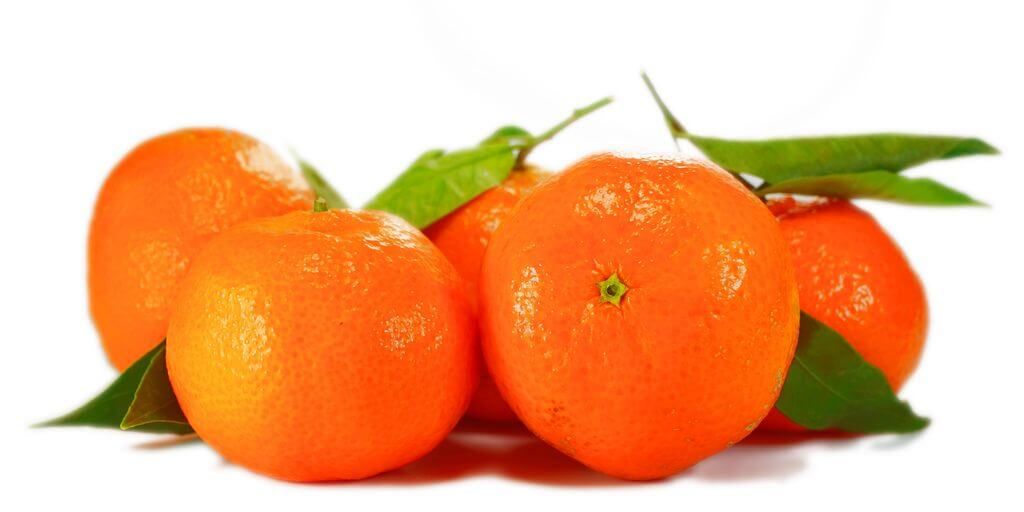Tangerine, (Citrus tangerina), is a type of citrus fruit closely related to the Orange (Citrus × sinensis). Tangerines are smaller and sweeter than oranges, with a deep orange-red color and a thin, easy-to-peel skin. They are typically in season during the winter months, making them a popular choice for holiday fruit baskets and festive desserts.
Tangerine Trees
Tangerines grow on small trees that originally came from China and Japan. The plants were first taken to Europe and later ended up in the United State.
Tangerine Fruit
Tangerines are a tasty citrus fruit that are loaded with vitamin C. Tangerines are also related to Mandarin oranges (Citrus reticulata). The main difference between the two is the time of harvest. Mandarin is a category of citrus that includes both tangerines and clementines.
So, while every tangerine or clementine is technically a mandarin, not every mandarin is a clementine or tangerine.
Tangerines are known for their juicy flesh, which is divided into segments. The fruit is bright orange in color, similar to an orange but smaller and easy to peel.
Tangerines have a sweet and tangy flavor profile, with less acidity than other citrus fruits like lemon and grapefruit.
Tangerine in Chinese Medicine
In Chinese medicine, the name chen pi refers to dried ripe peel of a tangerine, qing piq refers to the unripe peel of the tangerine and ju he refers to the seeds.
Health Benefits of Tangerines
Tangerines are a delicious and nutritious fruit that can be enjoyed in various ways as part of a healthy diet. They are low in calories and fat, making them a satisfying and guilt-free snack option.
The peel of tangerines is very aromatic and has a pungent, bitter taste. When compared to the flesh of the tangerine, the peel has more antioxidants and flavonoids that may prevent cancer and enhance the effectiveness of Vitamin C in the body. Additionally, the essential oil of tangerine can provide many benefits to those who use it.
Nutritional Content of Tangerines
Tangerines are rich in vitamin C, an essential nutrient that supports immune function, skin health and wound healing. They also provide dietary fiber, which aids in digestion and promotes satiety. Additionally, tangerines contain antioxidants such as flavonoids and carotenoids, which help protect cells from damage caused by free radicals.
Tangerine for Peptic Ulcers
The bacteria Helicobacter pylori has been found to contribute to peptic ulcers. Doctors often treat ulcers with antibiotics to kill H. pylori, however, tangerine may be a more natural way to treat this.
There is some scientific evidence to suggest that tangerine supplements can inhibit the growth of Helicobacter pylori (H. pylori), the bacteria associated with peptic ulcers and other gastrointestinal conditions. While tangerines and other citrus fruits contain compounds such as flavonoids and polyphenols that have antimicrobial properties, the specific effects of tangerine supplements on H. pylori have not been extensively studied.
Some research suggests that certain compounds found in citrus fruits, including tangerines, may have potential antibacterial activity against H. pylori in laboratory settings. However, more studies are needed to determine the effectiveness of tangerine supplements in inhibiting H. pylori growth in humans and their potential role in the prevention or treatment of H. pylori-related conditions, such as peptic ulcers and gastritis.
Tangerine for Obesity and Atherosclerosis
Nobiletin is a compound that is found naturally in the white portions of tangerine peels. Studies have looked into the effects of nobiletin on mice. Mice that were treated with nobiletin failed to develop obesity or atherosclerosis. Atherosclerosis refers to the build-up of fat in the arteries that can lead to heart attack or stroke.
Tangerine for Insulin Regulation
The mice given Nobiletin were also better able to regulate their insulin and glucose levels. While scientists are still exploring the links between tangerine supplements, weight and diabetes, preliminary studies indicate that this fruit may help prevent these types of problems.
Tangerine for Lowering Cholesterol
A 2004 study indicated that a compound commonly found in tangerine peel, polymethoxylated flavones (PMFs), helps lower cholesterol. Scientists gave hamsters high cholesterol by giving them poor, fatty diets. Then, the hamsters were fed diets with one percent PMFs from tangerines for 35 days.
The researchers learned that the hamsters fed with tangerine supplements had LDL (bad) cholesterol that was 32 to 40 percent lower than the control group. No negative side effects were noticed in the animals, and the HDL (good) cholesterol was unaffected by the supplements.
Cancer Fighting Effects of Tangerine
A 2007 British study has shown that certain compounds, salvestrols, that are found abundantly in the peels of tangerines, can cause cancer cells to self-destruct. The preliminary results indicate that cancer patients might benefit from taking a tangerine supplement. While clinical trials have not been performed on people, the evidence is promising.
How to Consume Tangerine
Tangerines are often eaten fresh as a snack, added to fruit salads, or used in desserts, jams and marmalades.
Tangerine tea can be made from dried tangerine peel. This is popular in Traditional Chinese medicine.
Tangerine essential oil can also be extracted from the peel of tangerines using a process called cold-press extraction. The resulting tangerine essential oil is highly aromatic and possesses the characteristic sweet, citrusy scent of fresh tangerines.
Tangerine Essential Oil Uses
Tangerine essential oil contains anti-fungal and antiseptic properties. For this reason, tangerine essential oil can be used in aromatherapy, massage oils and skincare products. It is helpful in preventing and treating acne or skin infections. It can also be used for preventing stretch marks.
The odor of tangerine oil smells clean and fresh. Many believe that the smell of tangerine oil is calming when one is overexcited or stressed. In aromatherapy, tangerine oil can be used as a sedative to help one rest and relax.
Tangerine essential oil can also be used in homemade cleaning products, among other applications, to enjoy its uplifting aroma and antimicrobial action.
Tangerine Latin Names
Tangerines (Citrus tangerina) belong to the Rutaceae family and are thought of as a variety of Citrus reticulata, which is the mandarin orange. Citrus tangerina is also treated as a synonym of Citrus deliciosa.
Always take care when taking herbs and Read Our Disclaimer.
Tangerine Notes / Side Effects
As with all citrus fruits, consuming too much can have a laxative effect.
If using tangerine oil on the skin, one should protect the skin from sunlight. Some people experience irritation of the skin when it is exposed to sunlight after topically applying tangerine oil. However, for most other topical uses tangerine oil is non-irritating, non-toxic and does not cause skin sensitivity.
References:
LI Y, XU C, ZHANG Q, LIU JY, TAN RX. IN VITRO ANTI-HELICOBACTER PYLORI ACTION OF 30 CHINESE HERBAL MEDICINES USED TO TREAT ULCER DISEASES. J ETHNOPHARMACOL. 2005 APR 26;98(3):329-33.
MURRAY W. HUFF. NOBILETIN ATTENUATES VLDL OVERPRODUCTION, DYSLIPIDEMIA, AND ATHEROSCLEROSIS IN MICE WITH DIET-INDUCED INSULIN RESISTANCE. DIABETES MAY 2011 VOL. 60 NO. 5 1446-1457.
ELZBIETA M. KUROWSKA AND JOHN A. MANTHEY; HYPOLIPIDEMIC EFFECTS AND ABSORPTION OF CITRUS POLYMETHOXYLATED FLAVONES IN HAMSTERS WITH DIET-INDUCED HYPERCHOLESTEROLEMIA; J. AGRIC. FOOD CHEM., 52 (10), 2879 -2886, 2004. 10.1021/JF035354Z S0021-8561(03)05354-8
(2007), PHARMACOGNOSY. JOURNAL OF PHARMACY AND PHARMACOLOGY, 59: A-59–A-63. DOI: 10.1211/002235707781850122



Leave a Reply